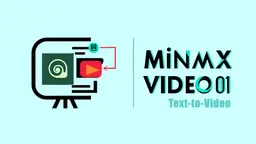AI Therapy Giriş
AI Terapisi, akıllı telefon veya bilgisayar aracılığıyla her zaman erişilebilen AI destekli bir chatbot asistanı ile 24/7 kişiselleştirilmiş ruh sağlığı desteği sağlar.
Daha Fazla GösterAI Therapy Nedir
AI Terapisi, ruh sağlığı desteği sağlamak ve terapi benzeri etkileşimler sunmak için yapay zekanın kullanılmasını ifade eder. Genellikle, kullanıcılarla metin tabanlı diyaloglar kurabilen konuşma AI chatbot'ları veya sanal asistanlar içerir ve duygusal destek, başa çıkma stratejileri ve genel ruh sağlığı rehberliği sunar. Bu AI terapistleri, geleneksel terapiyi tamamlamak için 24/7 erişilebilir olmayı hedefler. İnsan terapistlerin yerini almak için tasarlanmamış olsalar da, AI terapi araçları ruh sağlığı kaynaklarını daha erişilebilir hale getirmeyi ve yardım arama engellerini azaltmayı amaçlar.
AI Therapy nasıl çalışır?
AI terapi platformları, kullanıcılarla metin tabanlı sohbetler gerçekleştirmek için doğal dil işleme ve makine öğrenimi algoritmalarını kullanır. AI, ilgili yanıtlar sağlamak için terapötik diyaloglar ve ruh sağlığı bilgileri içeren büyük veri setleri üzerinde eğitilmiştir. Kullanıcılar düşüncelerini, duygularını ve durumlarını tanımlayabilir ve AI destekleyici mesajlar sunar, takip soruları sorar, başa çıkma teknikleri önerir veya psikoeğitim sağlar. Bazı platformlar, bilişsel davranışçı terapi (CBT) gibi kanıta dayalı terapilerin unsurlarını içerir. AI ayrıca zamanla ruh halini takip edebilir, öz bakım aktiviteleri için hatırlatıcılar ayarlayabilir veya kullanıcının girdi ve ilerlemesine dayalı kişiselleştirilmiş öneriler sunabilir. Gelişmiş sistemler, kullanıcının duygusal durumuna yanıtları uyarlamak için duygu analizi ve diğer teknikleri kullanabilir.
AI Therapy Faydaları
AI terapisi, geleneksel terapilere kıyasla 24/7 erişilebilirlik, anonimlik ve daha düşük maliyet gibi birkaç potansiyel fayda sunar. Sıkıntı veya kaygı anlarında anında destek sağlayabilir. İnsan yargısının olmaması bazı kullanıcıların açılmasını daha rahat hissetmesine neden olabilir. AI terapisi, yüz yüze terapi denemekte tereddüt edenler için bir giriş noktası olarak veya seanslar arasında bir ek olarak hizmet edebilir. Daha hafif sorunlar için temel destek sağlayarak aşırı yüklenmiş ruh sağlığı sistemleri üzerindeki yükü azaltmaya yardımcı olabilir. Bazıları için bir AI ile etkileşim, bir insan terapistiyle konuşmaktan daha az korkutucu olabilir. Ancak, AI terapisinin de sınırlamaları vardır ve kriz durumları için uygun değildir ya da gerektiğinde profesyonel ruh sağlığı tedavisinin yerini almak için kullanılmamalıdır.
AI Therapy Aylık Trafik Trendleri
AI Therapy, 15.2%'lik bir artışla 168 bin ziyarete ulaştı. Sınırlı doğrudan ürün güncellemelerine rağmen, 7/24 erişilebilirlik ve günlük duygusal destek özellikleri, sürekli ruh sağlığı desteği arayan daha fazla kullanıcının ilgisini çekmiş olabilir.
Geçmiş trafiği görüntüle
Popüler Makaleler

PixVerse V2.5 Sarılma Videosu Eğitimi | 2025'te Yapay Zeka Sarılma Videoları Nasıl Oluşturulur
Apr 22, 2025

PixVerse V2.5 Sürümü Yayınlandı: Hatasız, Gecikmesiz veya Bozulmasız Yapay Zeka Videoları Oluşturun!
Apr 21, 2025

MiniMax Video-01(Hailuo AI): Yapay Zekanın Metinden Videoya Dönüştürmede Devrim Niteliğindeki Atılımı 2025
Apr 21, 2025

CrushOn AI NSFW Chatbot Nisan 2025'te Yeni Hediye Kodları ve Nasıl Kullanılır
Apr 21, 2025
Daha Fazla Göster







